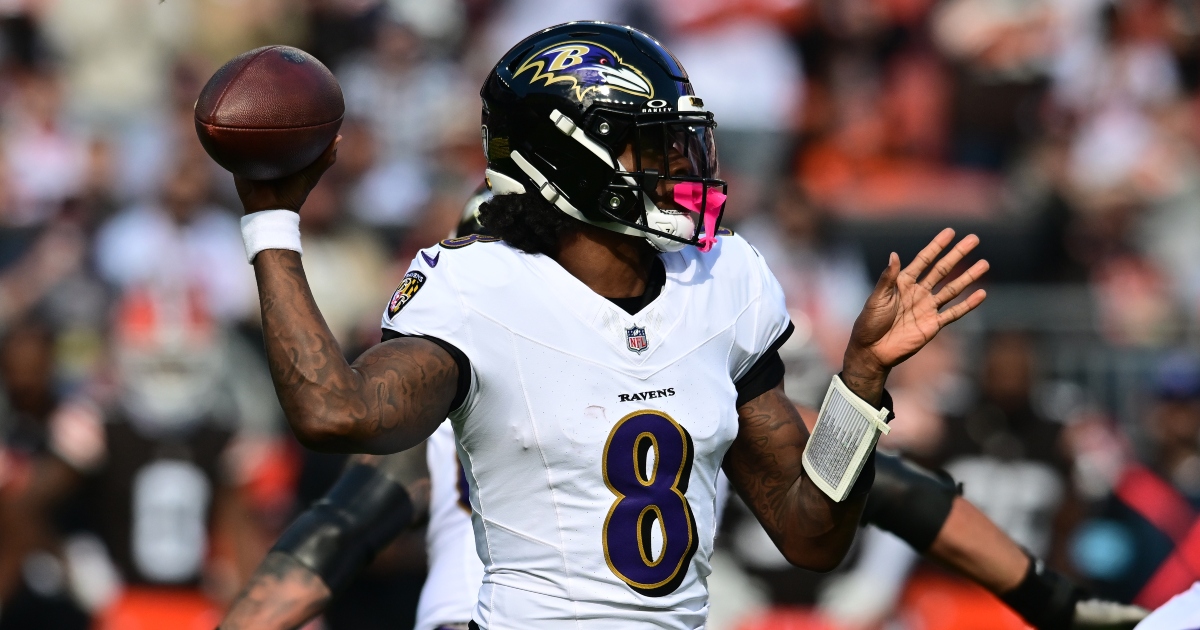

The NFL and NBA see positives and negatives in a federal sports betting bill introduced in Congress last week that includes advertising restrictions and prohibitions on live wagering, according to sources familiar with the leagues’ positions.
The Supporting Affordability and Fairness with Every Bet Act — or SAFE Bet Act — would prohibit sportsbook advertising from 8 a.m. to 10 p.m. and during live sports broadcasts. It would also ban bets on individual college athletes and in-game wagers on professional or college sports, something the NCAA has been lobbying for in states.
The league sources expect a lengthy legislative process with many adjustments to the SAFE Bet Act. The proposed ban on sportsbook advertising raised eyebrows at the leagues, according to sources.
Sportsbooks spent an estimated $22.9 million on 66 minutes of national linear TV ads during live NFL games the past two weeks, according to iSpot.TV, a company that measures the brand and business impact of TV and streaming advertising. The sportsbooks’ ad spend ranked sixth among all industries, and the airtime ranked eighth. Both figures are down approximately 15% from the first two weeks of last season, according to iSpot.TV.
The elimination of live betting — an increasingly popular form of wagering that takes place during games — is also likely to be a sticking point for the NFL and NBA and sportsbooks, according to the sources.
An NFL source told ESPN that the league is appreciative of legislative interest, especially any provisions in the SAFE Bet Act designed to help protect the integrity of the league and help combat game manipulation.
“At the same time, though, we’re concerned that there might be some unintended consequences on some of these provisions,” the league source said. “They’re ripe for further discussion.”
Major League Baseball and the NHL did not respond to requests for comment from ESPN.
An NCAA spokesperson told ESPN that the organization welcomes the SAFE Bet Act, particularly the provision that bans prop bets on individual college athletes, and supports national standards that “protect competition integrity” and “educate young people about the dangers of sports betting.” Betting on individual collegiate players is banned in 18 of the 38 states that offer legal betting, according to the NCAA.
An NBA source told ESPN that the league is monitoring the legislation and believes it is “at the starting point to a very lengthy process.”
NBA commissioner Adam Silver emphasized his continued support for a federal framework for sports betting at the league’s board of governors meeting Sept. 11, saying the “hodgepodge” of state-by-state regulations makes monitoring betting more difficult.
Silver became the first acting league commissioner in the U.S. to come out in support of legalizing sports betting nearly 10 years ago, in an op-ed in The New York Times.
“I certainly don’t regret writing that op-ed and being in favor of legalized sports betting,” Silver said at the board of governors meeting.
The SAFE Bet Act was introduced last week by Rep. Paul Tonko, D-N.Y., and Sen. Richard Blumenthal, D-Conn., who are alarmed by increases in calls to problem gambling helplines as legal betting has spread to 38 states and the District of Columbia.







